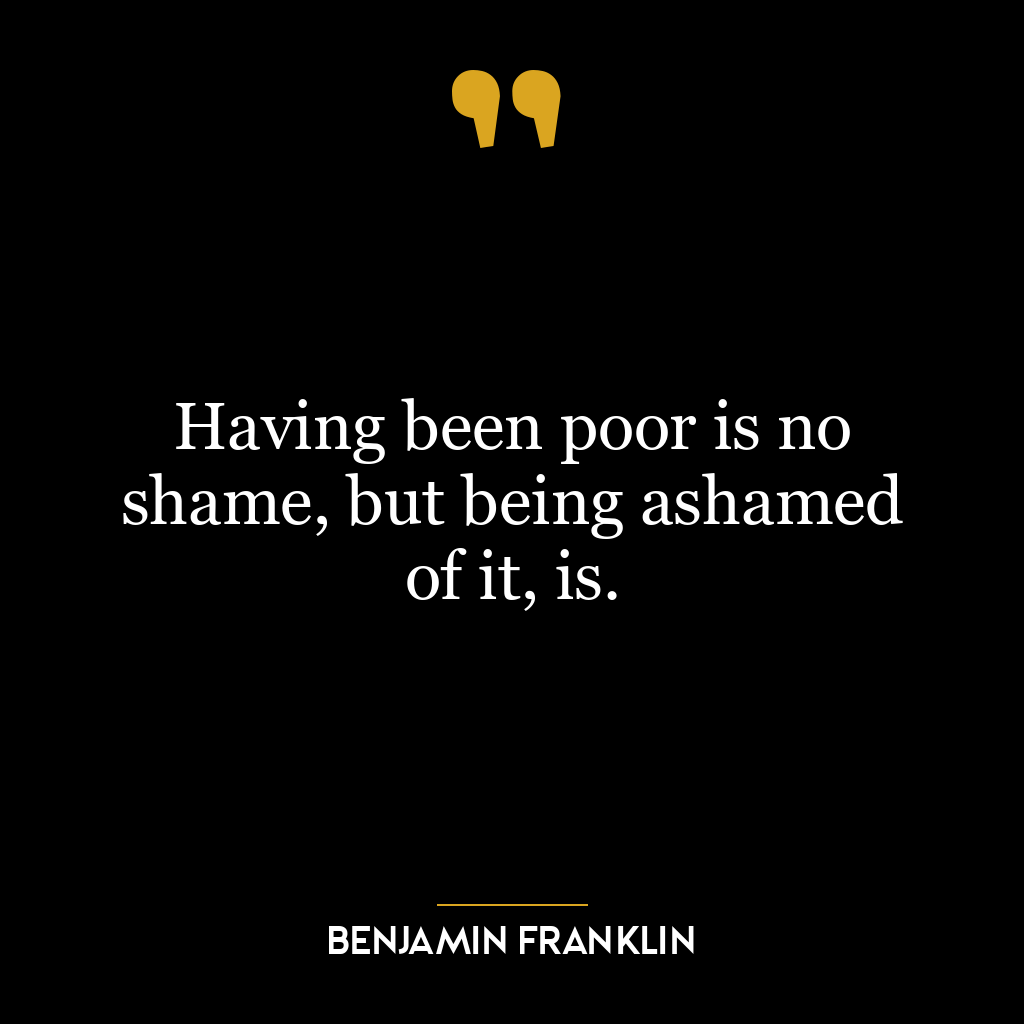This quote is an insightful observation about the nature of poverty and personal dignity. It suggests that poverty itself is not something to be ashamed of, as it often results from circumstances beyond one’s control. However, if one feels shame for having been poor, it indicates a misplaced sense of self-worth, as if one’s value as a person is determined by wealth or lack thereof. It’s a powerful reminder that our self-esteem should not be tied to our financial status.
The quote also implies that one’s past, including past poverty, can be a source of strength and resilience, rather than shame. It encourages us to embrace our past experiences, however challenging they may have been, and use them as stepping stones to grow and evolve.
In today’s world, this idea is particularly relevant as society often tends to equate success and worth with wealth. Social media platforms are filled with displays of affluence and luxury, which can lead to feelings of inadequacy or embarrassment about one’s own financial situation. However, this quote reminds us that it’s not our financial status, but how we perceive and handle it, that truly defines us.
In terms of personal development, this quote can be seen as a call to develop a healthy and independent sense of self-worth. It encourages us to value ourselves based on our character, actions, and personal growth, rather than our material possessions. It also reminds us to be compassionate towards ourselves and others who may be experiencing financial hardship, and to resist societal pressures to judge people based on their wealth or lack thereof.











